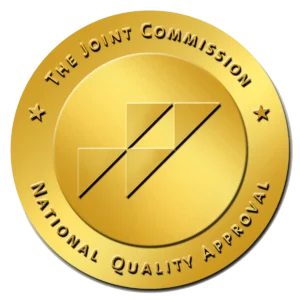It’s not always easy to recognize the early symptoms of a developing mental health condition in elderly people. Here are some signs to look out for.
Social Withdrawal
Seniors with psychological problems often withdraw from their social circles. They lose interest in activities they used to enjoy and may avoid social gatherings and engagements.
The National Institute on Aging warns that social isolation and loneliness have been linked to higher risks for a variety of physical and mental conditions: high blood pressure, heart disease, obesity, a weakened immune system, anxiety, depression, cognitive decline, Alzheimer’s disease, and even death.
“People who find themselves unexpectedly alone due to the death of a spouse or partner, separation from friends or family, retirement, loss of mobility, and lack of transportation are at particular risk. Conversely, people who engage in meaningful, productive activities with others tend to live longer, boost their mood, and have a sense of purpose. These activities seem to help maintain their well-being and may improve their cognitive function, studies show.”
Changes in Personal Care
Senior citizens with mental health issues sometimes noticeably alter their regular personal care routines. Changes in appearance or dress, or trouble maintaining the home may be indicative of a mental health crisis. The change could involve neglect or sudden excessive care. Seniors may unexpectedly change their overall appearance or the way they dress. Or they may neglect personal hygiene by forgoing activities of daily living such as shaving, washing, or changing clothes.
Changes in Eating Habits
A sudden change in eating habits can be equally troubling. Elderly people suffering from mental illness may start binging on food items or avoid eating altogether. They may start skipping meals or easily lose their appetite and not finish meals. They may lose interest in the nutritional quality of their food and start relying on junk food exclusively.
Depressed Mood
Signs of depression can be as simple as a change in general preferences of a senior, such as suddenly preferring to go by car on distances previously covered by walking, or waking up and sleeping at different times from their previous pattern. Sometimes, support at the right time can mitigate the onset of depression, and stop the problem from escalating.
Warning signs and indicators of depression include noticeable changes in mood, energy level, or appetite. Feeling flat or having trouble feeling positive emotions, increased worry, anger, irritability or aggressiveness. Sadness or feelings of hopelessness and suicidal thoughts
If untreated, the impact of depression on health in older adults can be severe. Research shows that depression is associated with worse health in people with conditions like heart disease, diabetes, and stroke. Depression can also complicate the treatment of these conditions, or keep people from seeking treatment at all.
Substance Misuse
One reaction to depression can be substance misuse. As in younger people, drug and alcohol misuse is often a maladaptive attempt to cope with a mental health condition. Binge drinking among the elderly is on the rise. Substance misuse is risky at any age, but older adults are more vulnerable to the negative health effects of binge drinking because excessive alcohol consumption can have dangerous interactions with medications and worsen symptoms of health problems like heart disease, diabetes, and high blood pressure,
Issues With Memory
If an elderly loved one is showing signs of memory loss, do not automatically write it off as a “normal” part of aging. It could be something more serious requiring treatment. Although many older Americans struggle with mental health issues, those issues are not a normal part of the aging process. You may need to consult a psychiatric professional if memory issues and similar problems persist.
Indicators of memory problems are misplacing belongings, inability to recognize a person the elderly person could recognize before, and asking for the same information that they inquired about just minutes earlier.
Hallucinations or Delusions
Seeing things that aren’t really there is a serious symptom of a potential psychotic break from reality. There are many possible causes, including schizophrenia, Parkinson’s disease, or Alzheimer’s disease and other forms of dementia, especially Lewy body dementia. If your senior has hallucinations or delusions, they need to see a doctor.
Comprehensive Care
There is no need to accept any of the conditions listed above as irreversible. With the right specialty treatment, they can often be improved—sometimes dramatically.
The Pavilion at Williamsburg Place offers a geriatric program specifically designed for adults aged 55 and over. Medical advances have allowed people to live longer and our understanding of elderhood has changed in recent decades. Common admission diagnoses at the Pavilion include dementia, depression, anxiety, mood and behavior changes, and substance misuse. Medical specialists may be consulted to manage underlying physical illnesses that may be contributing to behavioral, emotional, and cognitive instability.





